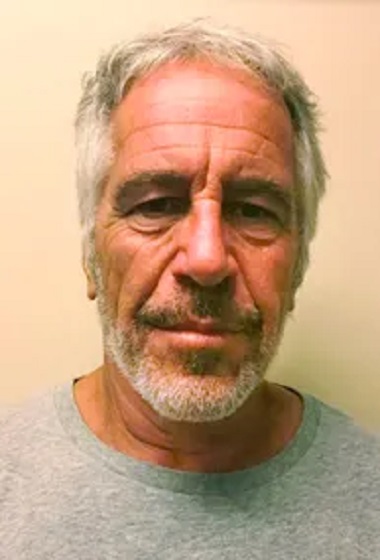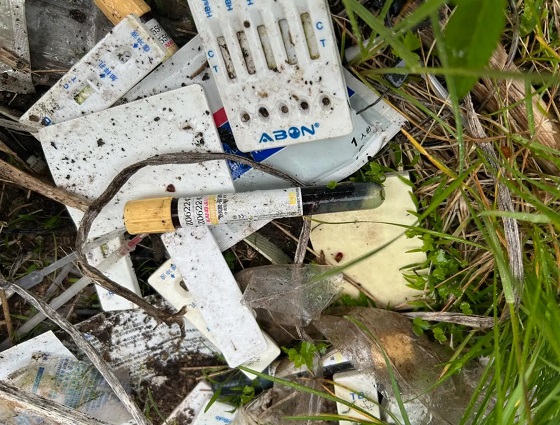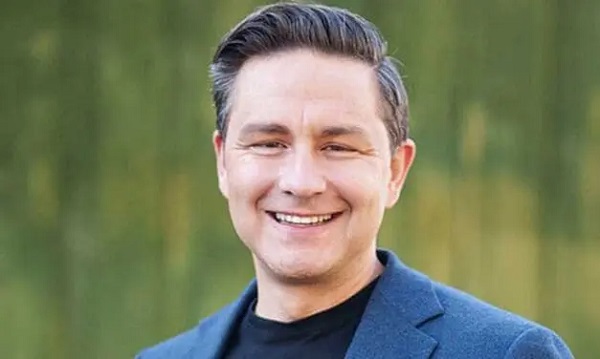International
FBI: Trump was playing golf when shots rang out. 2nd assassination attempt on Donald Trump’s life thwarted

From The Center Square
By
Trump was playing golf at his club when shots rang out
U.S. Secret Service agents shot at and later arrested a man with an AK-47 rifle near Donald Trump’s West Palm Beach, Fla., golf club Sunday afternoon while Trump was on the course. The FBI said it is investigating the incident as an attempted assassination of the former president, the second in two months.
Palm Beach County Sheriff Ric Bradshaw said at a news conference that the Secret Service alerted local authorities that shots were fired about 1:30 p.m. Sunday. A Secret Service agent who was monitoring the course a hole ahead of Trump noticed a man with a rifle pointing the barrel through a chain-link fence near shrubbery that surrounds the course, Bradshaw said. The agent fired on the alleged gunman, who was approximately 300 to 500 yards away from the former president. Trump, the Republican nominee for president, was rushed back to the clubhouse in a golf cart and was unharmed.
A witness told authorities he saw the gunman running from the scene to a car, and was able to get the car’s license plate, Bradshaw said. Agents were able to track the vehicle and arrested the suspect, Bradshaw said. He remains in custody. No other details were released about the suspect.
“Fortunately, we were able to locate a witness that came to us and said, ‘Hey, I saw the guy running out of the bushes. He jumped into a black Nissan, and I took a picture of the vehicle and the tank,’ which was great,” the sheriff said. “So we had that information, … put it out to the license plate readers, and we were able to get a hit on that vehicle on I-95 as it was headed into Martin County. We got a hold of Martin County Sheriff’s Office, alerted them, and they spotted the vehicle and pulled it over and detained the guy.”
Authorities found the rifle, a scope, two backpacks and a GoPro camera in the bushes where the gunman was hiding.
“The FBI has assumed the role as the lead federal law enforcement agency in the investigation of the incident that occurred earlier today at Trump International Golf course here in West Palm Beach, Florida,” Jeffrey Veltri, special agent in charge of the FBI Miami field office, said at the news conference. “We’ve deployed a number of resources, including investigative teams, crisis response team members, bomb technicians and evidence response team members as well.”
Trump told Fox News that he was on the 5th hole when he heard gunshots.
“Tell everybody I am fine and the Secret Service did a great job,” Trump told Fox News.

Trump International Golf Club, West Palm Beach, Fla.
The West Palm Beach golf club is less than five miles from Trump’s Mar-a-Lago home.
Bradshaw said that if Trump were a sitting president, there would have been more security around the perimeter of the golf course
Sunday’s incident occurred two months after Trump was the target of an assassination attempt at a campaign rally in Butler, Pa. Trump was grazed by a bullet in his ear in the Pennsylvania shooting just two days before the start of the Republican National Convention. The suspect in the earlier assassination attempt was shot and killed at the scene.
The Secret Service was widely criticized for its lax security efforts after the Pennsylvania attempt. Kimberly Cheatle, the director of the U.S. Secret Service, resigned under heavy pressure.
This is a developing story.
Great Reset
U.S. rejects WHO pandemic amendments, citing threat to sovereignty

Quick Hit:
- The U.S. State Department and HHS transmitted the official rejection of the 2024 amendments to the WHO’s IHR.
- Officials cited threats to national sovereignty, vague terminology, and the WHO’s political susceptibility—particularly to China—as grounds for rejection.
- The amendments would have mandated WHO-led responses, digital health documentation, and “equitable access” initiatives regardless of U.S. withdrawal from the WHO.
RFK Jr. just announced he has rejected the WHO’s draconian new pandemic treaty.
Every American should care about this.
“Last year, the World Health Organization’s governing body made some far-reaching amendments to its international health regulations, otherwise known as the… pic.twitter.com/GI9UzsTrKv
— MAHA PAC🗽 (@MAHA_PAC) July 18, 2025
Diving Deeper:
The rejection represents a sharp rebuke of the World Health Assembly’s 2024 amendments to the International Health Regulations (2005), which sought to centralize global pandemic decision-making power within the WHO. Kennedy and Rubio emphasized the amendments’ “vague and broad” language and their potential to create policy rooted in politics and global “solidarity” rather than science and national interest.
Among the most controversial changes were new authorities for the WHO to unilaterally declare health emergencies, coordinate international responses, and guide member states toward “equitable access” to vaccines and other health commodities. The amendments also encouraged countries to implement digital health documents—raising red flags for privacy and surveillance concerns.
“The amendments risk unwarranted interference with our national sovereign right to make health policy,” the joint statement read. Kennedy and Rubio specifically criticized the lack of public input in drafting the new rules and warned that WHO directives could suppress legitimate scientific debate and restrict Americans’ freedom of speech under the guise of “controlling misinformation.”
The officials pointed to the WHO’s well-documented failures during the COVID-19 pandemic, including its deference to the Chinese Communist Party, as a stark example of why international bodies should not be granted binding authority over U.S. domestic policy. “These amendments… fail to adequately address the WHO’s susceptibility to political influence and censorship—most notably from China—during outbreaks,” the statement noted.
Even more alarming, the statement highlighted that the amended rules would have bound the U.S. regardless of its current status in the WHO, essentially imposing obligations on a nation that is no longer part of the organization. This drew particular concern from Rubio, who has long warned against ceding U.S. autonomy to global institutions.
In reaffirming their commitment to “put Americans first,” Kennedy and Rubio vowed to continue resisting international encroachments on U.S. freedoms. “We will not tolerate international policies that infringe on Americans’ speech, privacy, or personal liberties,” they declared.
This formal rejection marks a victory for critics of globalism and top-down health mandates, signaling that under the current administration, American decision-makers are prioritizing sovereignty, transparency, and constitutional protections over global consensus driven by unelected bureaucrats.
Crime
Former Epstein lawyer: There was never a client list

Quick Hit:
Jeffrey Epstein’s former attorney Alan Dershowitz says there was never a “client list,” calling the claim fiction in a Wall Street Journal op-ed. He also defended President Trump, saying there’s no evidence of any improper or questionable behavior.
Key Details:
- Dershowitz wrote that Epstein “never created a ‘client list,’” and clarified that the FBI only documented names brought up by alleged victims in interviews, which were redacted in released files.
- He stressed that none of the redacted names are current officeholders and added that the veracity of the accusations remains unknown.
- Dismissing rumors of hidden cameras used to entrap guests, Dershowitz said surveillance tapes existed only in public areas and were installed by law enforcement—not Epstein.
Diving Deeper:
In a Wall Street Journal op-ed this week, constitutional attorney Alan Dershowitz addressed lingering speculation surrounding the late Jeffrey Epstein, his alleged surveillance operation, and his reported ties to public figures. Dershowitz, who represented Epstein years ago and has consistently challenged many media narratives surrounding the case, said the facts don’t support the sensational claims.
“Epstein never created a ‘client list,’” Dershowitz wrote, pushing back on the widely circulated notion that Epstein maintained a record of high-profile individuals for the purpose of blackmail. He clarified that the FBI had compiled names mentioned by alleged victims during interviews, but that those names were redacted in publicly released documents. “We don’t know whether the accusations are true,” he added. “The names mentioned don’t include any current officeholders.”
Dershowitz also sought to debunk claims that Epstein maintained a secret camera system in his guest bedrooms to entrap powerful visitors. “There are videotapes, but they are of public areas of his Palm Beach, Fla., home,” he wrote. According to Dershowitz, those surveillance cameras were installed by police after Epstein reported that money and a firearm were stolen from the property. “I am not aware of video cameras in guest bedrooms,” he added.
Turning to President Donald Trump, Dershowitz flatly denied that any evidence exists linking him to wrongdoing. “Open records show an acquaintance between Epstein and President Trump many years ago,” he wrote, before emphasizing that the relationship ended long ago. “That relationship ended when President Trump reportedly banned Epstein from Mar-a-Lago, long before becoming president the first time.”
“I have seen nothing that would suggest anything improper or even questionable by President Trump,” Dershowitz concluded.
His remarks arrive amid a resurgence of political and media interest in Epstein’s associations. But Dershowitz’s message is clear: much of the speculation is unsupported by evidence, and President Trump’s name should not be dragged into narratives that have no basis in fact.
-

 Immigration2 days ago
Immigration2 days agoUnregulated medical procedures? Price Edward Islanders Want Answers After Finding Biomedical Waste From PRC-Linked Monasteries
-

 Business2 days ago
Business2 days agoDemocracy Watchdog Says PM Carney’s “Ethics Screen” Actually “Hides His Participation” In Conflicted Investments
-

 Addictions2 days ago
Addictions2 days agoAfter eight years, Canada still lacks long-term data on safer supply
-

 National2 days ago
National2 days agoLiberals push to lower voting age to 16 in federal elections
-

 Bruce Dowbiggin1 day ago
Bruce Dowbiggin1 day agoHow Did PEI Become A Forward Branch Plant For Xi’s China?
-

 COVID-191 day ago
COVID-191 day agoJapan disposes $1.6 billion worth of COVID drugs nobody used
-

 Automotive21 hours ago
Automotive21 hours agoAnother sign Canada’s EV mandate is FAILING
-

 Alberta13 hours ago
Alberta13 hours agoPoilievre poised for comeback in Alberta stronghold






